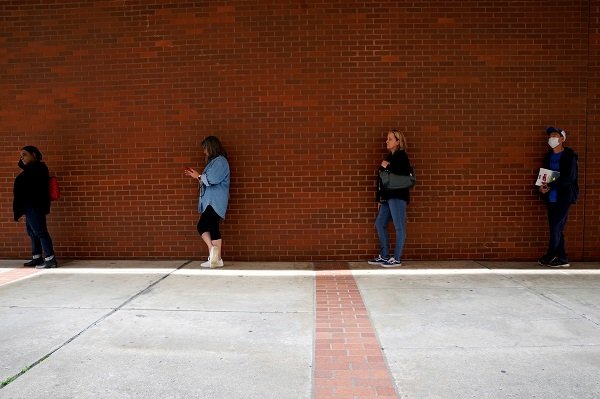
A recent report from the US Department of Labor (DOL) Inspector General (IG) spotlights why it’s far too easy to rip off the temporary federal Pandemic Unemployment Assistance (PUA) program.
The October 21 report, titled “Covid-19: States Cite Vulnerabilities in Detecting Fraud While Complying with the CARES Act UI Program Self-Certification Requirement,” describes how PUA claimants “generally self-certify by checking a box next to a qualifying reason on the form submitted to state workforce agencies.” The report notes that states surveyed “identified the self-certification legislative requirement as the top fraud vulnerability in implementing the PUA program.” That confirms a warning the IG issued in May, which stated “To establish eligibility, the CARES Act requires individuals to self-certify that they have lost employment income due to a COVID-19 related reason specified within the statute. This self-certification renders the individual eligible to receive payments immediately. … The Office of Inspector General (OIG) believes state’s reliance on self-certifications alone to ensure eligibility for PUA will lead to increased improper payments and fraud.”

Amplifying PUA’s self-certification
vulnerability is the fact that the law creating the program actually prohibits
states from requiring claimants to submit evidence of prior earnings or income
to determine their eligibility for these unemployment benefits. As the IG’s more
recent report notes, “the Department’s Solicitor’s Office
asserts that states have no authority to require claimants to provide
documentation of wages earned or income verification. The OIG believes state’s
reliance on self-certifications alone to ensure eligibility for PUA will lead
to increased improper payments and fraud.” That also echoes the IG’s May
warning: “We believe that reliance solely on claimant self-certifications
without evidence of eligibility and wages renders the PUA program highly
vulnerable to improper payments and fraud. Without additional tools such as
those that already exist under the DUA regulations cited in this alert, the PUA
program presents substantial risks of the likelihood of loss of millions of
taxpayer dollars.”
The recent high-profile arrest of rapper Fontrell Baines (also known as “Nuke Bizzle”) on allegations he fraudulently applied for over $1 million in PUA benefits shows why current policies are insufficient impediments to fraud. His case attracted global attention because he composed a rap song in which he and a colleague boasted of getting “rich off of EDD.” EDD refers to the State of California’s Employment Development Department, which has distributed over $100 billion in state and federal unemployment benefits like PUA. Those unemployment benefit payments made in California since March are already almost four times the unemployment benefits paid nationwide in a typical year. The lyrics of “EDD” suggest the rappers are “happy to certify” their eligibility for PUA — apparently multiple times, judging from the charges of fraud and the stacks of $100 bills strewn throughout the video. They also mock the ease of ripping off the program, singing “You gotta sell cocaine. I can just file a claim.”
Since the PUA program started operating in the spring, solo scammers have been joined by international crime syndicates engaging in systematic and far more extensive ripoffs of PUA benefits. California’s PUA program experienced massive fraud attacks in August that apparently added millions of phantom PUA recipients and billions in costs. Colorado officials reported in September that more than 75 percent of PUA claims since July 18 “were determined to be fraudulent.” Even faraway Guam unemployment officials reported they recently experienced “90 percent fraud to 10 percent good claims coming into our system.”
The temporary PUA program is authorized through December, meaning in the coming weeks Congress must make important decisions about its continued operation. The IG report rightly argues self-certification opens the door too wide to fraud and should end. As I previously reviewed, PUA claimants should be expected to provide proof of prior work to continue collecting benefits. Some states have taken steps to verify personal identification and prevent identity theft, but all should do so. Congress could also jettison the guaranteed minimum PUA benefit that exceeds prior wages for some recipients and makes the program a more inviting target for fraudsters. And ultimately, scammers boasting about how easy it is to rip off the system add pressure to simply let the flawed program expire as scheduled.
The post Inspector general’s report confirms warnings of vulnerability of pandemic unemployment benefits to fraud appeared first on American Enterprise Institute – AEI.
